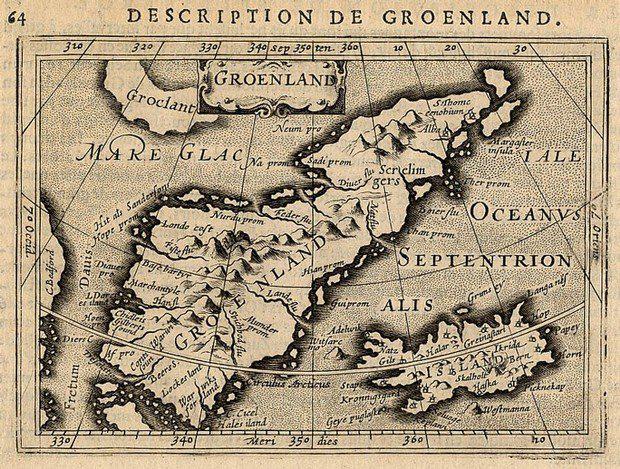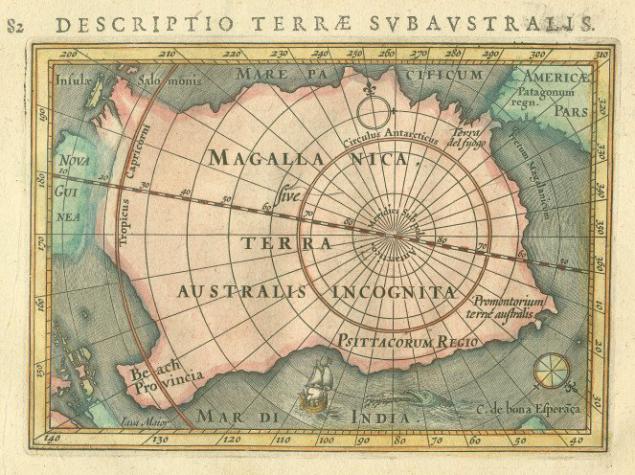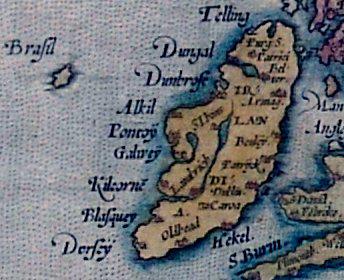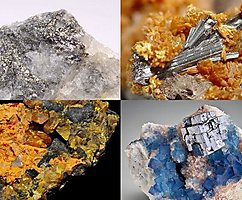Geographical names. Marketing Mistakes
 Bashny.Net
Bashny.Net
The origin of the names of some countries to have the same «Terra incognita», as once America for pioneers. Greenland ice translated as "Green Earth", and the islands in Melanesia named in honor of King Solomon
GREENLAND

Nobody ever wondered why Greenland - a huge island, all the time covered by the glacier, it is called Greenland (Norwegian Grønland), which means "green earth". It seems that the Vikings, who opened it, a little too clever by half with geographical landmarks and mixed it with Ireland or Britain. But sources tell us more interesting story. According to the chronicler Ari the Wise, who lived in the XI century, Greenland got its name from its discoverer light hand of Eric the Red, who wanted to bring back a promising name colonists. In the end, even the Vikings needed a reason to go somewhere.
However, there is another version according to which in the X century climate in Greenland really was more hospitable than it is today, and the coastal areas of the south-west of the island, which saw Eric, were covered with dense herbaceous vegetation.
MADAGASCAR

Its name to the island of Madagascar is obliged Italian traveler Marco Polo, who confused him with the peninsula. Obviously, studying the sources, it is related to their descriptions "Madagasikaru" (Madagascar) with an area of Mogadishu - the current name of the capital of Somalia. That, in general, is not surprising, since, despite his colorful descriptions of local nature and fauna, he had never been there.
SOLOMON ISLANDS

Solomon Islands in Melanesia were discovered by the Spanish Medan de Nera in the XVI century. Barter with locals gold, he compared the new earth with the legendary biblical land of Ophir, where supposedly brought jewelry and diamonds for the temple of Solomon. According to the Scriptures ships to Ophir just went in the direction of the ports of the Red Sea.
Believed there really Medan that opened the land mines of King Solomon, or simply had the word had a beautiful story - is unknown. But it's worth noting that the legend of Ophir was really common in those days.
AUSTRALIA

Name of Australia also does not meet the expectations of its discoverers, who believed that finally found the Terra Australis Incognita, the southernmost lands traditionally depicted on maps from ancient times to the XVIII century. It outlines disappeared from the map after a trip of James Cook in 1772, who said that if the South Mainland and there, it is located very close to the policy and is of no value.
Prior to that, the Europeans believed that South land is quite suitable for life. Its outline on ancient maps accompanied by a picture of mountains, rivers and lakes. In 1770, shortly before the opening of Cook, the English explorer Alexander Dalrymple wrote a work where brought evidence that the population of the southern continent is more than 50 million people.
In general, due to the well-known and popular myth Australia, Australia and remained in the translation - "Southern Land". This term is used the explorer Matthew Flinders, who first explored the Australian coast.
BRAZIL

Brazil also owes its name to the legendary land - Island Brazil (O'Brazil and High-Brasil) from Irish mythology. At least so says one of the versions. Mythical island in the Atlantic Ocean has been applied to many cards XIV-XVII centuries. Most often it is portrayed to the west of Ireland.
The legendary island promised great promise, as it is considered the island's Cathedral, the Promised Land. Therefore, the expedition in search of him have been many times. Just him personified many newly discovered land. One of them, obviously, could be Brazil, which was struck by the discoverers of its abundance. According to another version, the name "Brazil" appeared in 1510, when Lisbon merchant established local red timber trade with the mother country. Portuguese called precious wood Pau Brasil (from the Portuguese brasa - heat, coal), as decided to find a place where Arabs took mahogany, known in Europe since the XII century.
GREENLAND

Nobody ever wondered why Greenland - a huge island, all the time covered by the glacier, it is called Greenland (Norwegian Grønland), which means "green earth". It seems that the Vikings, who opened it, a little too clever by half with geographical landmarks and mixed it with Ireland or Britain. But sources tell us more interesting story. According to the chronicler Ari the Wise, who lived in the XI century, Greenland got its name from its discoverer light hand of Eric the Red, who wanted to bring back a promising name colonists. In the end, even the Vikings needed a reason to go somewhere.
However, there is another version according to which in the X century climate in Greenland really was more hospitable than it is today, and the coastal areas of the south-west of the island, which saw Eric, were covered with dense herbaceous vegetation.
MADAGASCAR

Its name to the island of Madagascar is obliged Italian traveler Marco Polo, who confused him with the peninsula. Obviously, studying the sources, it is related to their descriptions "Madagasikaru" (Madagascar) with an area of Mogadishu - the current name of the capital of Somalia. That, in general, is not surprising, since, despite his colorful descriptions of local nature and fauna, he had never been there.
SOLOMON ISLANDS

Solomon Islands in Melanesia were discovered by the Spanish Medan de Nera in the XVI century. Barter with locals gold, he compared the new earth with the legendary biblical land of Ophir, where supposedly brought jewelry and diamonds for the temple of Solomon. According to the Scriptures ships to Ophir just went in the direction of the ports of the Red Sea.
Believed there really Medan that opened the land mines of King Solomon, or simply had the word had a beautiful story - is unknown. But it's worth noting that the legend of Ophir was really common in those days.
AUSTRALIA

Name of Australia also does not meet the expectations of its discoverers, who believed that finally found the Terra Australis Incognita, the southernmost lands traditionally depicted on maps from ancient times to the XVIII century. It outlines disappeared from the map after a trip of James Cook in 1772, who said that if the South Mainland and there, it is located very close to the policy and is of no value.
Prior to that, the Europeans believed that South land is quite suitable for life. Its outline on ancient maps accompanied by a picture of mountains, rivers and lakes. In 1770, shortly before the opening of Cook, the English explorer Alexander Dalrymple wrote a work where brought evidence that the population of the southern continent is more than 50 million people.
In general, due to the well-known and popular myth Australia, Australia and remained in the translation - "Southern Land". This term is used the explorer Matthew Flinders, who first explored the Australian coast.
BRAZIL

Brazil also owes its name to the legendary land - Island Brazil (O'Brazil and High-Brasil) from Irish mythology. At least so says one of the versions. Mythical island in the Atlantic Ocean has been applied to many cards XIV-XVII centuries. Most often it is portrayed to the west of Ireland.
The legendary island promised great promise, as it is considered the island's Cathedral, the Promised Land. Therefore, the expedition in search of him have been many times. Just him personified many newly discovered land. One of them, obviously, could be Brazil, which was struck by the discoverers of its abundance. According to another version, the name "Brazil" appeared in 1510, when Lisbon merchant established local red timber trade with the mother country. Portuguese called precious wood Pau Brasil (from the Portuguese brasa - heat, coal), as decided to find a place where Arabs took mahogany, known in Europe since the XII century.
Tags
See also
Funny pictures and photos with the kids
The fight against obesity. Oddities
Helicopters for the first persons
10 important facts about the "Superfood"
What is the nickname given Russian
Top 10 most unusual viewing platforms in the world
Stories about the place of the dead
Devilish boulders
Interesting facts about Zielonka
7 most dangerous plants
















